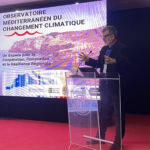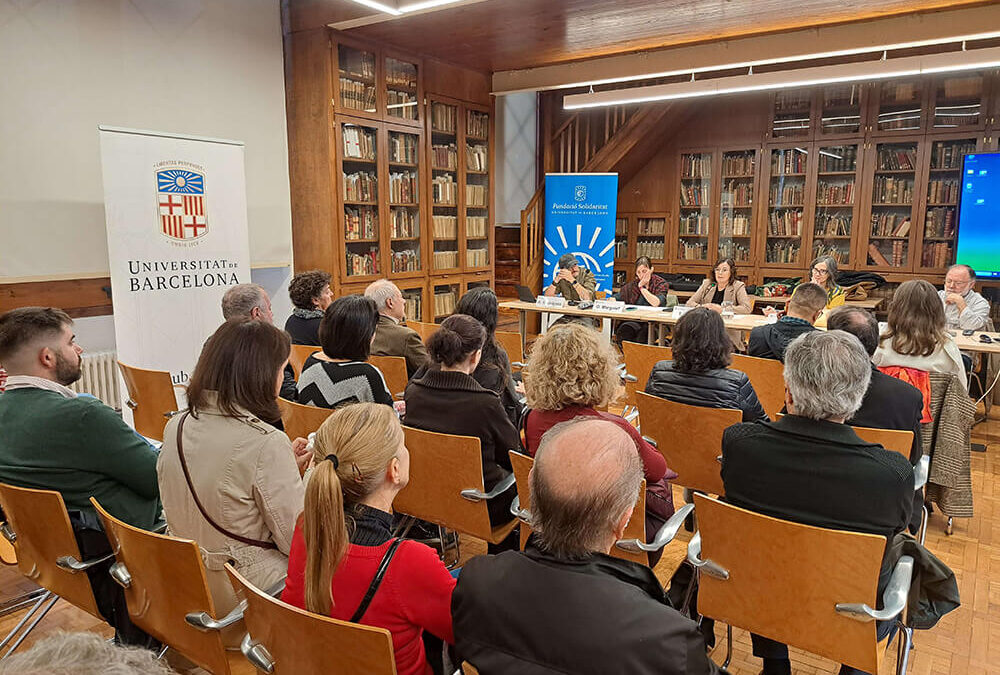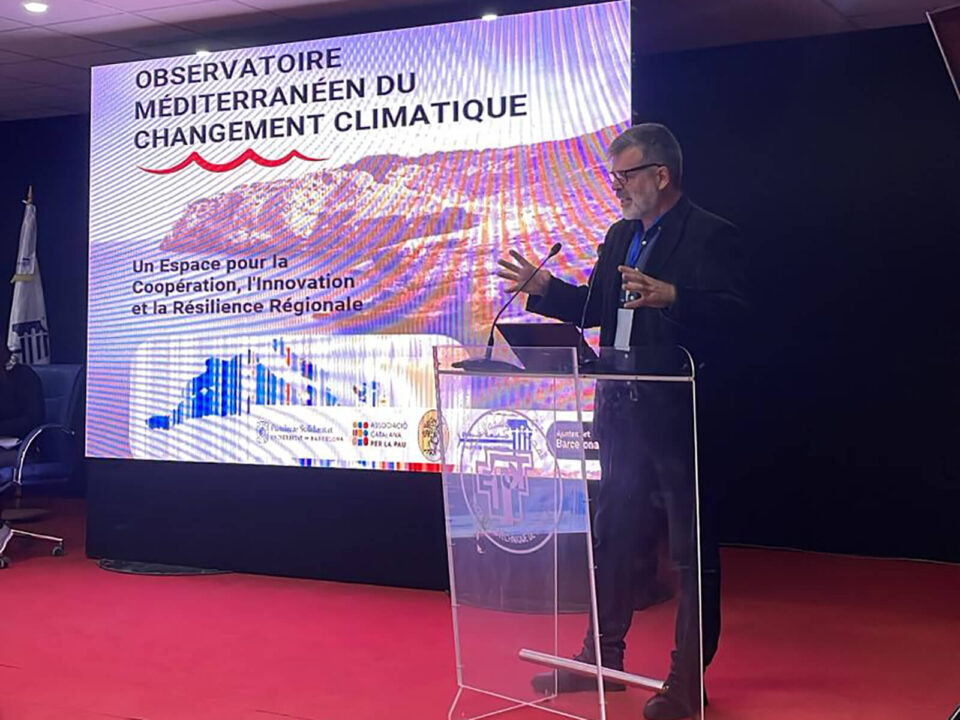
Water, food security and NbS: the heart of the Mediterranean Observatory of Climate Change (MOCC)
December 3, 2024The MOCC has been presented at the University of Barcelona, and will hold its first congress in Tunis on December 2 and 3.
The Mediterranean Observatory of Climate Change (MOCC) was officially presented on November 29, 2024, in the Historic Building of the University of Barcelona with a round table and the inauguration of the photographic exhibition “The Melting Age” by Alfons Rodríguez.
The event was chaired by the Vice-Rector for Sustainability and Climate Action of the UB, Teresa Sauras, who recalled that it has been a month since the impact of the tsunami in the Valencian Country and a week since the closing of COP29. In this context, the Vice-Rector pointed out that “climate change is a challenge that the University of Barcelona cannot and does not want to avoid” and, for this reason, has made available to society and, specifically, to the MOCC the “research, training and knowledge capacities” of the UB to help face it.
In the scientific field, Dr. Olga Margalef, member of the RISKNAT research group and professor at the Faculty of Earth Sciences of the UB, has underlined the special vulnerability of the Mediterranean region to climate change, so that “Catalonia shares this problem much more with the Mediterranean basin than with northern Europe”. Margalef has indicated that, in the Mediterranean, precipitation can decrease by up to 30% and, however, the concentration of intense rain at certain times considerably increases the risk of flooding. Likewise, the professor has stated that, in a region where 500 million people live on the coast, the level of the Mediterranean Sea is rising twice the average of what it has been rising during the 20th century. For these and other reasons, Margalef encouraged “sharing ancestral knowledge and innovation strategies” from the region to adapt to the climate crisis, urged “incorporating risk management into public policy and community management,” and recalled that “all the impacts of climate change are greater on people in vulnerable situations.”
At the community level, Mercè Garet, program coordinator for the Tot Raval Foundation, explained how the Horta Sud Foundation, in the region most affected by the disaster, is working on the current emergency and reconstruction. For Garet, “from community foundations,” which bring together organizations and people to improve life in a territory, “coordinated work plans can be articulated to respond to challenges such as climate change.” This is what the Horta Sud Foundation is doing, she said, which “reconstructs the social fabric of the region based on the reconstruction of associations, which weave bonds between people.”
As a representative of the entities promoting the Mediterranean Climate Change Observatory (MOCC), the director of the UB Solidarity Foundation, Xavier López, explained that the MOCC “is driven by and, at the same time, seeks the collaboration of actors from various fields (universities, development organizations, civil society associations, etc.) who are aware that the climate crisis is a common problem and, therefore, the solutions must also be shared.” As priority work topics, López listed water scarcity, vulnerable agriculture, the increased risk of floods and the loss of biodiversity.
Finally, photojournalist Alfons Rodríguez provided figures linked to the climate emergency, with which he presented the exhibition “The Melting Age”: a photographic journey through more than thirty countries on seven continents, which illustrates the causes and consequences of climate change.


